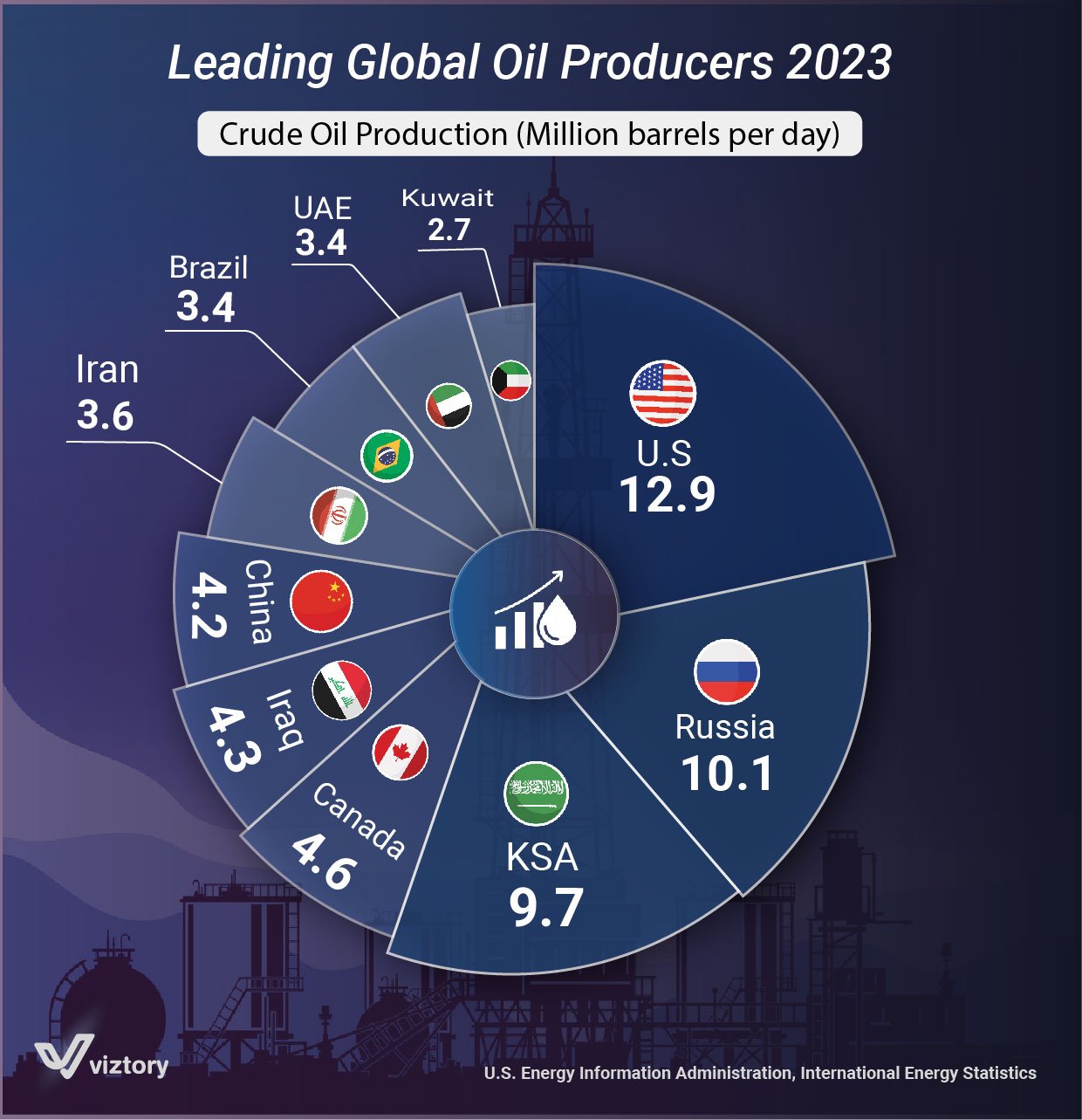Top Global Oil Producers in 2023: The Crucial Role of Oil in the Global Economy
-
Aug, Fri, 2024
Top Global Oil Producers in 2023 The Crucial Role of Oil in the Global Economy
The image in front of us highlights the top oil-producing countries in the world for 2023, showcasing the major players in the global energy market. The United States leads the list with a production of 12.9 million barrels per day, followed by Russia with 10.1 million barrels per day, and Saudi Arabia with 9.7 million barrels per day.
The Importance of Oil in the Global Economy
Oil is one of the most important natural resources in the world, playing a critical role in the global economy. It is not only used as a primary source of energy but also as a raw material in the production of many petrochemical products such as plastics, fertilizers, and chemicals.
Oil prices are a major concern for global economies, as their fluctuations can directly affect production costs, commodity prices, and inflation levels. For many countries, oil is a primary source of national income, making it a significant factor in determining their budgets and economic strategies.
The United States: The Global Leader in Oil Production
The United States topped the list of the largest oil producers in 2023, thanks to the development of hydraulic fracturing and shale oil extraction technologies, which enabled the country to extract oil from deep shale layers. This major shift has made the U.S. not only energy self-sufficient but also a key global oil exporter.
Russia and Saudi Arabia: Strong Competitors for the Top Spot
Russia ranks second with a production of 10.1 million barrels per day. Oil is a key element of the Russian economy, with the country relying heavily on its exports to fund its budget. With international sanctions, Russia is seeking to secure new markets for its oil, increasing competition in the global oil market.
Saudi Arabia, meanwhile, is not only the third-largest oil producer in the world but also one of the largest exporters. The Kingdom plays a critical role in the Organization of the Petroleum Exporting Countries (OPEC), where its decisions significantly influence global oil prices.
Future Challenges and Opportunities
Despite the importance of oil in the global economy, the industry faces future challenges. Among the most prominent are the shift towards renewable energy sources and environmental policies aimed at reducing carbon emissions. This transition could reduce the long-term demand for oil, potentially impacting economies that rely heavily on oil production and exports.
The Role of Smaller Producers in Market Balance
In addition to the major players, smaller producing countries such as Iran (3.6 million barrels per day), Brazil, and the UAE play a significant role in balancing the oil market. These countries rely on different strategies to secure their market share, whether through international alliances or investment in improving production technologies.
Conclusion
Oil production in 2023 reflects the geographical distribution of energy and natural resources across the globe. With the continued global demand for energy, oil will remain a pivotal factor in shaping economic and geopolitical policies. However, the global shift towards renewable energy may present new challenges for oil-producing countries, necessitating the development of future strategies that balance the exploitation of natural resources with the transition to a sustainable economy.

